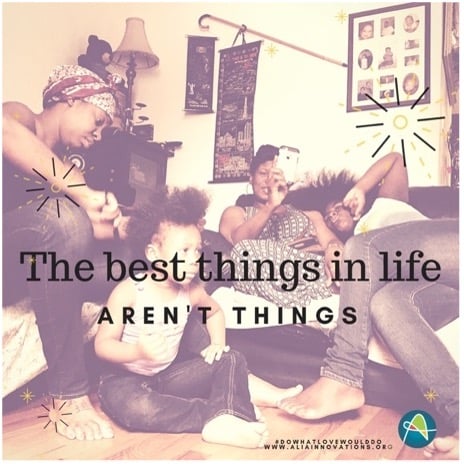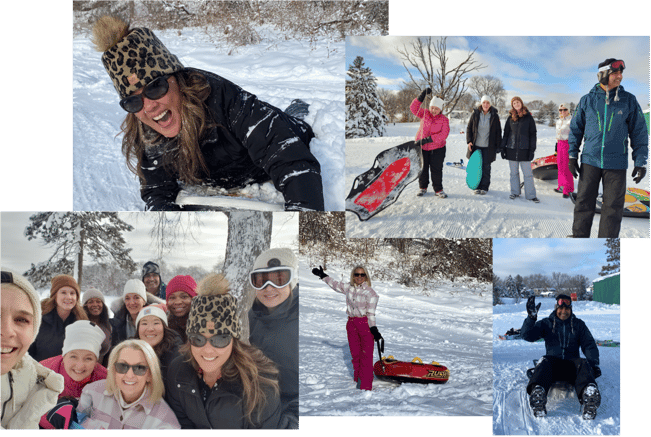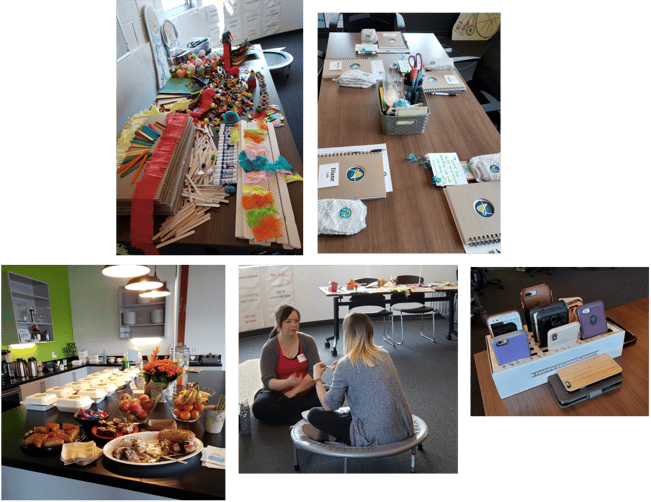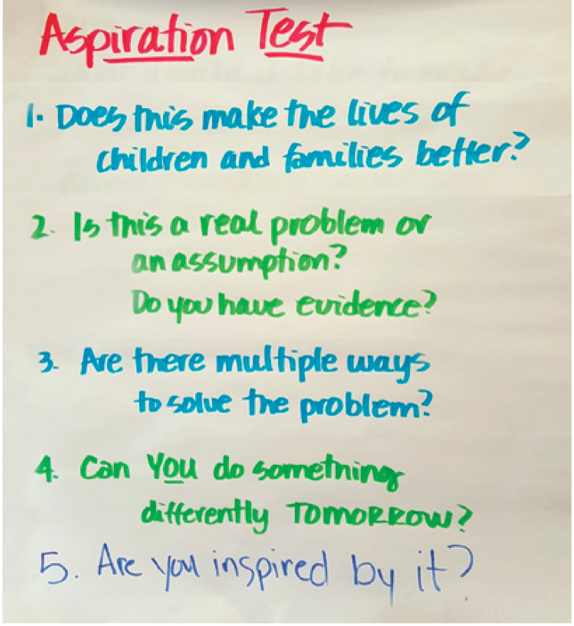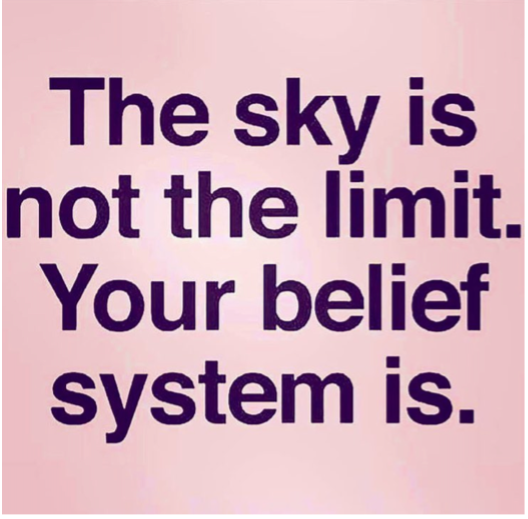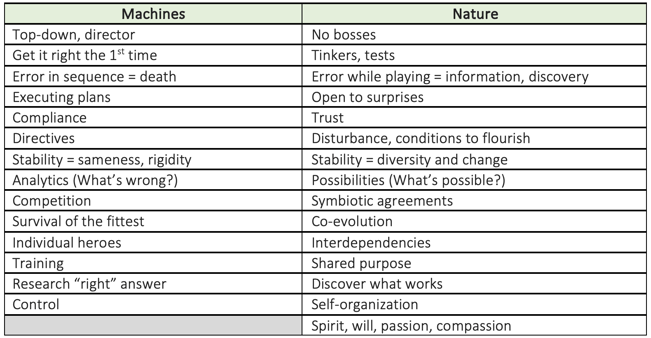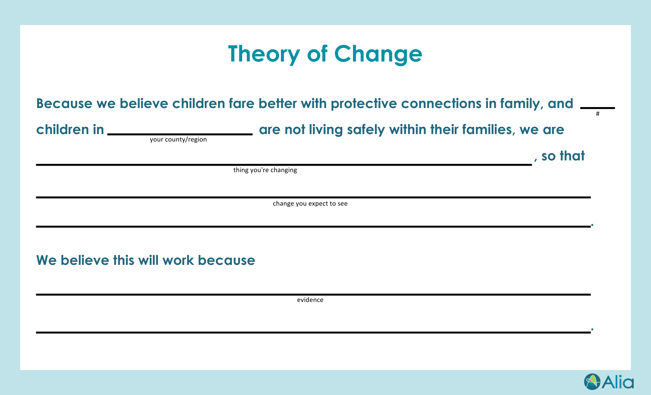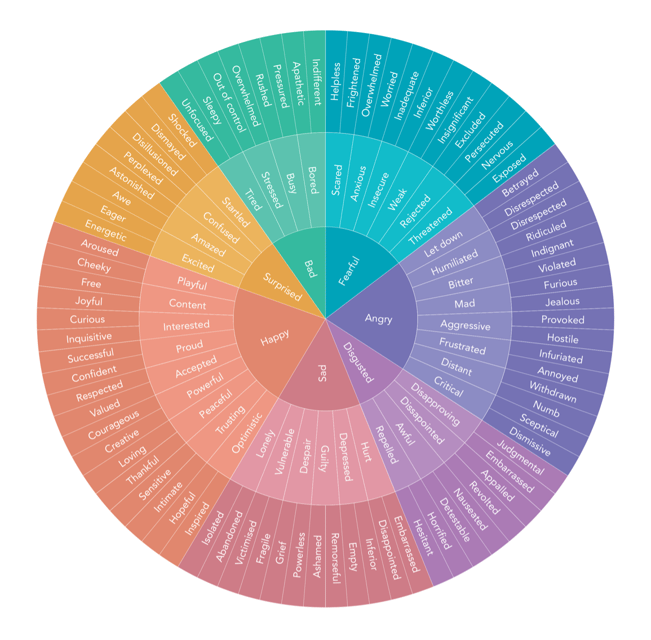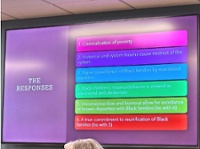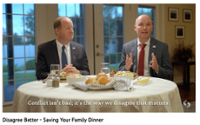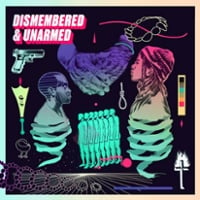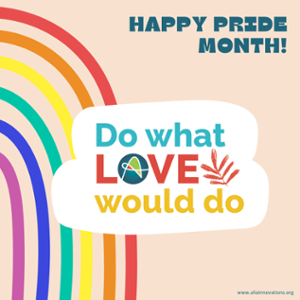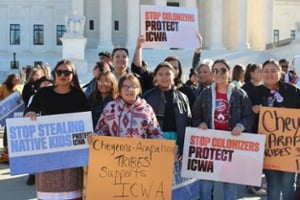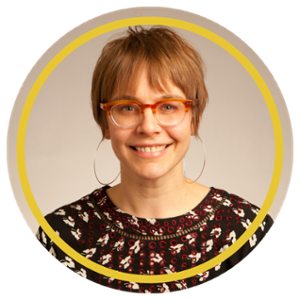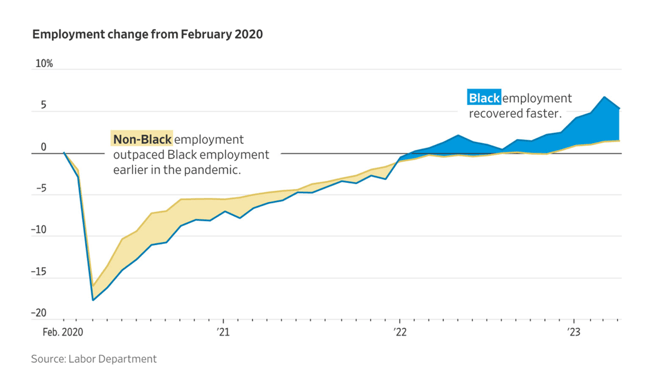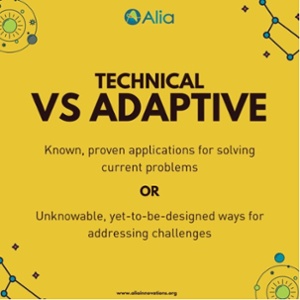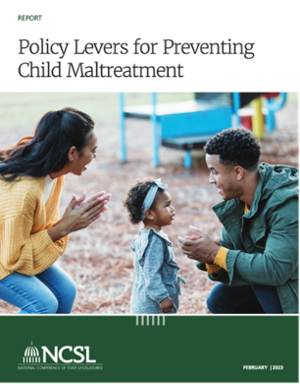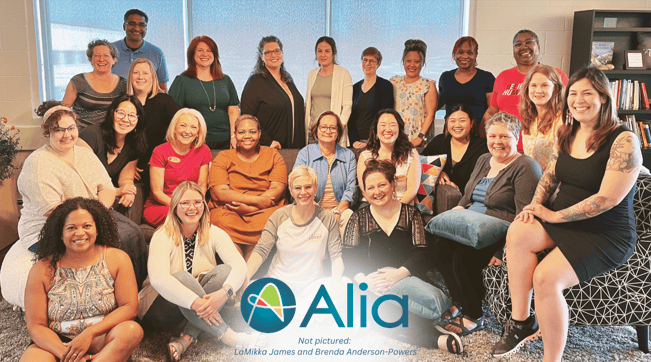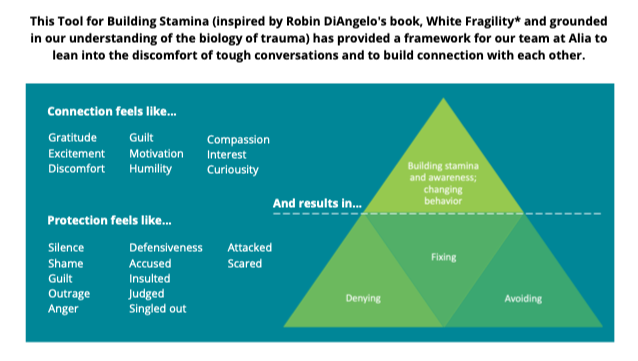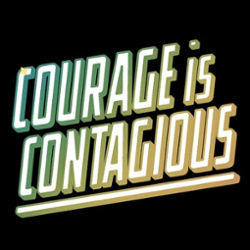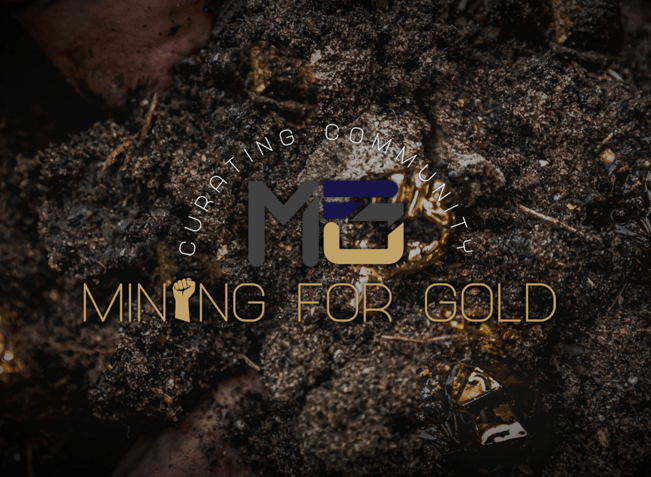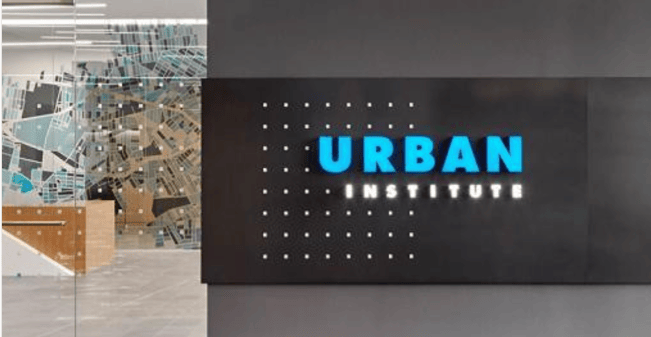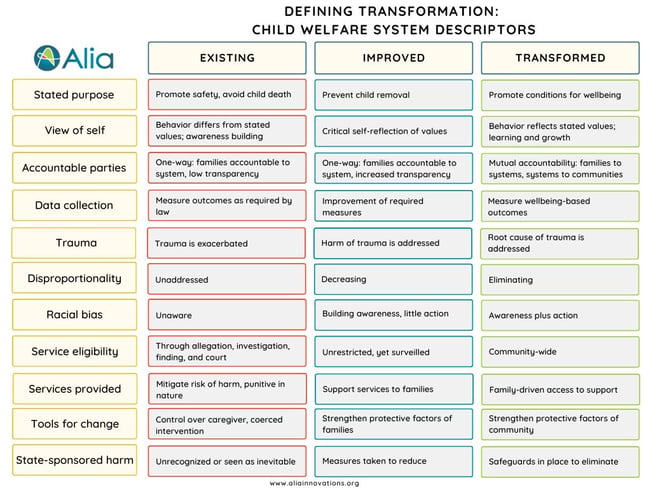“In organizations, real power and energy is generated through relationships, and the capacity to form those relationships is more important than tasks, functions, roles, and positions.” – Dr. Margaret Wheatley
Read MoreRecent Posts
Emerging from the lock-down of the pandemic, the chronic distance-keeping made us all appreciate proximity to others. At Alia we have always prioritized connection, but only after the pandemic did we intentionally commit to investing our in-person time toward play. With 27 staff in seven different states, we gather as a full staff only three or four times a year and so each hour together is precious. Yet we all agree, playing together returns dividends!
Read MoreIf you’ve experienced an in-person Alia event, you know we delight in treating our guests with great care. We find when there is focused work to be done, meeting your needs and eliminating distractions makes thinking innovatively easier as you bring your whole self to the challenge at hand. A constant source of refreshing drinks, daylight pouring in, your cellphone out of reach, and a beautiful notebook with your name on it just ready for your brilliant reflections are just some of the conditions we create for you to focus on work in front of you (rather than what’s going on back at the office or at home).
Read MoreIs your agency’s aspiration worth aspiring to? Test it!
When the 3-year, 4-state, 5-jurisdiction Alia UnSystem Innovation Cohort leaders plus the professional and lived expert guides were goal-setting early in 2018, one important question we had to answer was, “How do we know if our aspiration is good enough?”
Read More
What’s possible? How far can we take this? Would that really work? If only we could… <fill in the blank with an audacious dream or ideal scenario>.
Read MoreDr. Margaret Wheatley, organizational effectiveness expert, poet, biologist, author, and historian reminds changemakers of a fact which we should not need to be reminded: we are people, not machines.
Read MoreIf you work in or around the child welfare system you are likely involved in an effort to change it. One part of the change process is getting crystal clear on why change needs to happen, exactly what change is being implementing, and why we believe it will work.
Read MoreRoot cause analysis on foster care re-entry rate for Black children in MN
We often hear that Minnesota is a great place to live…if you’re white. Wellbeing statistics favor white people in Minnesota and that includes experiences with the child welfare system. Black and Native children are removed from their homes at rates 5 and 16 times higher, respectively, than white children.
Read MoreFinding common ground in a polarized political climate
One thing most people can agree on is how important it is to keep children safe and families together.
Read MoreTake time to de-bias yourself with truth and love
Reflecting on the week, you can always tell yourself two truths:
Read MoreIndependence Day: a celebration of liberty and invitation for deep healing
Frederick Douglass delivered an Independence Day-themed speech to the Rochester Ladies’ Anti-Slavery Association on July 5, 1852, in New York. He spoke directly to both the freedom and courage and the oppression and harm inherent in this national anniversary.
Read MoreEarlier this year Texas governor Greg Abbott labeled gender-affirming care for minors as child abuse and called on professionals to report parents to child protective services for providing this care to their minor children. Bans to gender-affirming care are in effect or being considered in more than 20 states across the country.
Read MoreAfter months of waiting, the Supreme Court delivered a decision on Brackeen vs Haaland, a vote determining the constitutionality of the Indian Child Welfare Act (ICWA). It passed and ICWA remains intact. Tribes retain sovereignty over their people, family connections reign as sacred, and remaining rooted in the culture you were born into is a fundamental right.
Read MoreFrom the Alia UnSystem Innovation Cohort: What if we simply asked families?
At Alia, we carry forward the lessons learned from the 5-team, 14-jurisdiction, 3-year UnSystem Innovation Cohort.
Read MoreA farewell reflection from Katie Miller, Alia’s Managing Director of Innovation and Connection
In 2016 upon moving back to the United States after 7 years abroad, I got in touch with Amelia Franck Meyer, my former MSW licensing supervisor, to reactivate my local social work connections. Maybe she knew someone who was hiring and could look beyond my gap in recent work history?
Read MoreEmployment prospects of Black Americans improve since the pandemic
Major economic and injustices remain, yet this trend is worth highlighting: a White House report shows micro improvements in the employment prospects of Black Americans.
Read MoreTechnical and adaptive challenges – what we can know and what we must create new
Sometimes there are already answers to the questions we have – known, proven applications for solving our current problems. Yet sometimes a solution is unknowable because it’s never existed, and we must therefore design our own way to address challenges.
Read MoreWhen adults are able to meet the needs of their families – starting with the most basic such as quality housing, food, healthcare, and childcare – it creates a solid foundation for safe and healthy child development. Conversely, multiple family stressors increase the risk of parental overload. This, in turn, increases incidences of child abuse and neglect and child welfare involvement.
Read MoreWe love our all-staff, in-person retreats! Yes, to get work done, but to play a lot, too. Because HOW we work together is just as important as WHAT we do together.
Read MoreAlia tool for moving through discomfort in anti-racism dialogue
You may feel at times (as we sometimes do) a tendency to self-protect when in discussion around themes of anti-racism. We may feel the need to protect ourselves from harm, exposure, punishment, or shame, which in turn can flip us into fight or flight mode.
Read MoreNew Alia theory of change emerging, yet love and belonging remain central
“We must change our measures of success to not only protect children’s physical safety, but to also safeguard their hearts,” is a quote from the organizational manifesto Alia developed alongside Pollen Midwest back in 2017.
Read MoreMany child welfare professionals understand that problems faced by a parent are beyond their control. Nevertheless, they must identify “risk factors,” including those of past family conflict, and hold the caretaker (usually mother) responsible, as the only person over whom they have power, for anything that potentially threatening her child. The current child welfare system does not have power to change the conditions of poverty, to make housing more stable, or to address root issues causing domestic violence, substance misuse, or mental health challenges.
Read MoreReflection on Mining for Gold podcast with Joyce McMillan
For years we at Alia have looked to Corey Best, Curator at Mining for Gold, for inspiration of the heart and expansion of the mind. He’s joined here by parent leader, activist, and advocate, and Executive Director of JMAC for Families, Joyce McMillan, whose thought leadership has deeply influenced our approach to system transformation.
Click and listen as these justice workers do some truth-telling to kick off day one of the 47th Black History Month. Take in these thoughts in from the conversation:
What are human services and how do governments structure them? In this recent report, the Urban Institute and the American Public Human Services Association (APHSA) answer these simple yet fundamental questions. This complex set of service coordination and delivery can be configured in myriad ways. Specialized or generalist, contracted or direct service delivery, integrated or separate in structure, technology, planning, and budgeting – the landscape is wide for how we move toward building UnSystems across the country.
The report describes in detail the variety of ways states in the U.S structure and govern human services – what is included and who, how alignment occurs (or not), and which model is most effective (there isn’t one). The overall conversation reminds us that nothing is fixed. There are many different approaches to providing services to populations and subpopulations in our communities.
